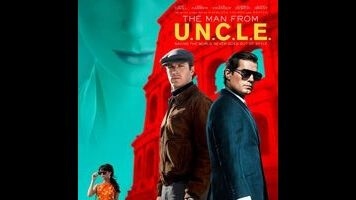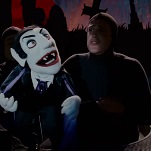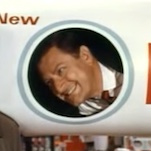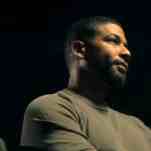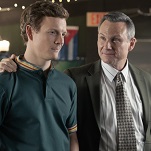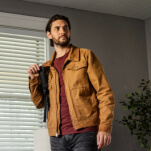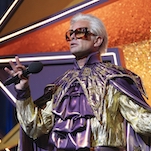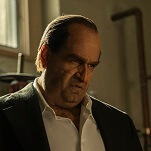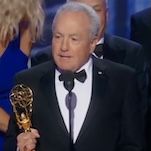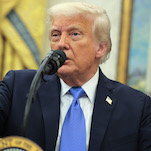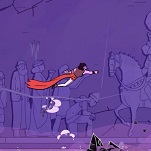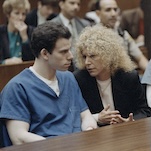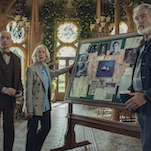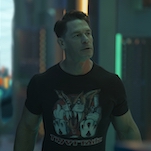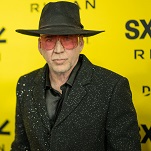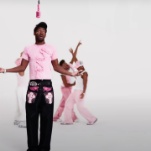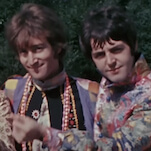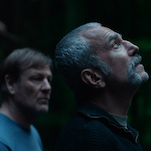A holdover from the ’90s-era mandate that every television show from the ’60s needed the big-screen treatment, The Man From U.N.C.L.E. is adapted from an old spy show with loose ties to Ian Fleming, and (unlike many TV transplants) remains in the original program’s Cold War era. In early-’60s Berlin, Napoleon Solo (Henry Cavill), a thief conscripted into the CIA, crosses paths with KGB agent Illya Kuryakin (Armie Hammer) and German mechanic Gaby Teller (Alicia Vikander). They’re brought together to bring down a wealthy criminal (Elizabeth Debicki) who is using Gaby’s estranged birth father (“Hitler’s favorite rocket scientist”) to arm a nuclear weapon.
It’s standard action-movie stuff, but The Man From U.N.C.L.E. is the first big Warner Brothers action movie that Ritchie has also helped script. This doesn’t mean he enlivens the dialogue, which sometimes substitutes anachronisms (like the phrase “pump the brakes”) for wit, or the plotting, which manages to become at once simplistic and convoluted in that familiar blockbuster way. But Ritchie and his co-writer Lionel Wigram leave plenty of room for their other skills, which include brisk, offhand characterization and playful teasing of the archetypes they employ. In a movie full of heightened retro fashion, for example, it makes sense that Solo and Illya would bicker over the particulars of outfits worn while undercover.
Cavill, the Brit who plays Superman, sticks with the all-American act as Solo, and seems, if anything, more credible in this lighter, sillier take on a square-jawed hero. In fact, the four principle actors in U.N.C.L.E. are all specifically cast as nationalities different from their own, including Hammer, an American doing a brusque Russian accent as Illya, who he plays like a T-800 powered largely by seething rage. He and Solo are immediately at odds, but Solo regards his reluctant partner with more fascination than contempt, referring to him as a fearsome “it” after first witnessing Illya’s brute strength. Illya softens his severe demeanor ever so slightly for Gaby, and in one of the best scenes, they cycle through several varieties of movie-style foreplay without quite making it to the moment of consummation, which becomes a running gag. Meanwhile, Debicki, as she did in The Great Gatsby, steals scenes almost entirely through domineering body language. (The film pays tribute to her natural presence by giving her character the ability, at one point, to silence the soundtrack with a raise of her finger.)
All of the actors look great in roles that are more visual than anything else, predicated on details like Vikander’s mod sunglasses or Cavill’s slick coif; these characters don’t have convincing lives outside the impeccably decorated frame. But plenty still happens in that unseen space. Ritchie is fond of placing important action either in the background, like the second half of a boat chase that unfolds as Solo pauses for a snack, or offscreen entirely, as with an unseen restroom fight between Illya and a gang of toughs, playing the nonchalance and the implications for laughs. (All of the movie’s sex happens offscreen, too, but that’s par for the would-be blockbuster course.) There are more of these moments than full-blown action sequences (the Impossible Missions Force has nothing to worry about on that front), and the most traditionally climactic set piece serves as a reminder that the movie’s strengths lie elsewhere.
By that point (a choppy four-wheeler chase sometime after the 90-minute mark), the two-hour movie begins to wear itself out. Some of its storytelling ploys are particularly lame: Ritchie’s idea of a twisty plot involves skipping over vital information in a continuous scene, then replaying the scene a few minutes later with all of the dialogue included—a trick not quite entertaining enough to sell its cheapness. But while The Man From U.N.C.L.E. probably isn’t any less of a caricature of its period than Sherlock Holmes, it carries its fakeness with more snap in its step. The imaginary intrigue it generates is fleeting, but often beautiful.
